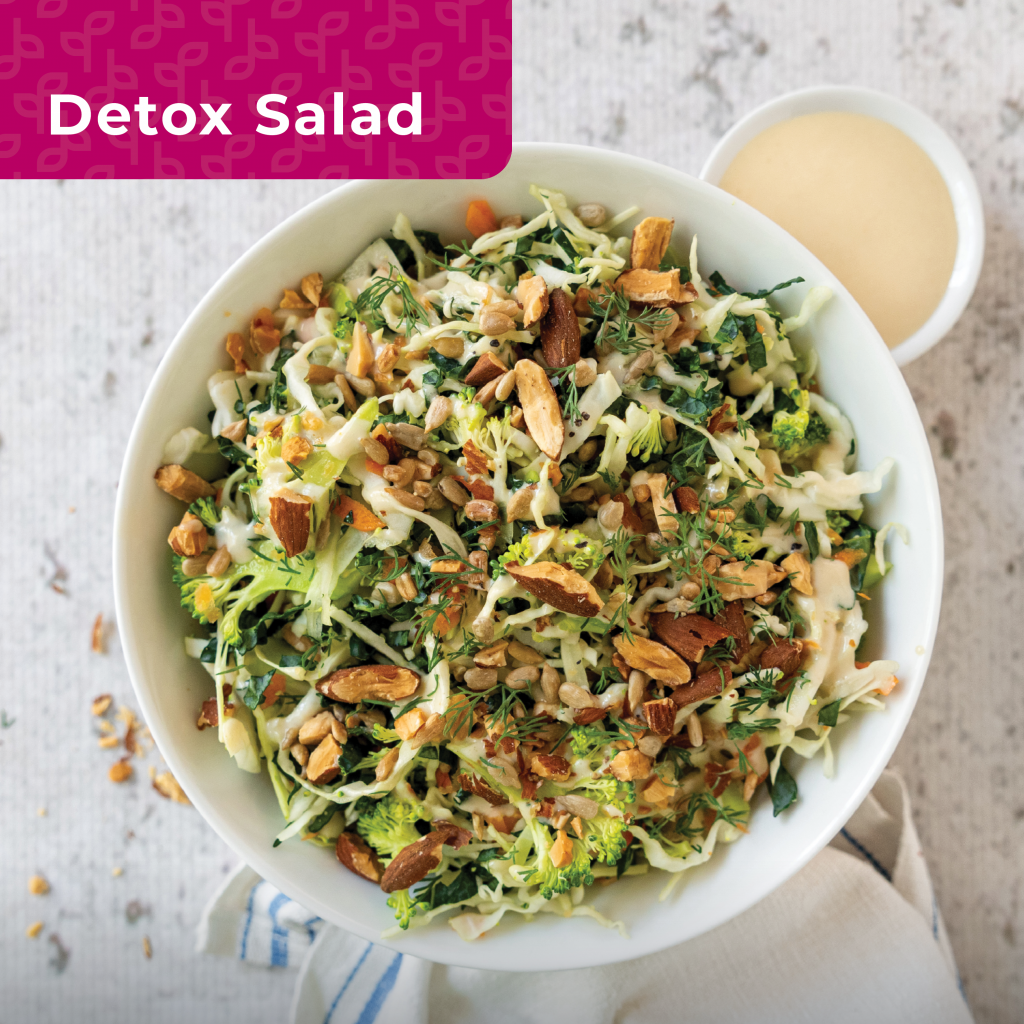
In our fast-paced world, maintaining good mental health is more important than ever. While factors such as stress, genetics, and life circumstances can affect your mental well-being, emerging research suggests that diet may also have a profound impact on your mood and overall mental health.
Let’s explore the impact that your diet has on your mental health and discover foods you can incorporate to help support a healthy mood.
The Gut-Brain Connection
One of the most important aspects linking food and mood is the gut-brain connection, also known as the gut-brain axis. The gut-brain axis is a two-way communication system that connects your gut and your brain. This connection allows for constant communication between the two organs, influencing everything from mood and cognition to appetite and immune function.
Your gut microbiota, a diverse community of microorganisms living in your digestive tract, plays a key role in the relationship between your gut and your brain. These microbes produce important neurotransmitters, such as serotonin and dopamine, which are involved in mood regulation. In fact, your gut is responsible for making 95% of the serotonin in your body.
The Link Between Diet and Mental Health
The connection between diet and mental health has gained the attention of researchers in recent years. Studies are beginning to show a complex relationship between what we eat and how we feel.
For example, one 2020 review found that increasing fruit and vegetable intake may help improve mood and overall well-being. Additionally, your gut microbiome, which is heavily influenced by diet, may be a key player in your mental health.
Research suggests that a balanced diet rich in fiber and fermented foods may help support a healthy gut-brain axis, potentially helping to elevate your mood. Conversely, studies have found that diets high in processed foods, sugars, and saturated fats have been linked with poor mental health and increased irritability.
Foods That Can Support a Healthy Mood
As you can see, the foods you eat can play a significant role in supporting your mental health. The following are foods to consider adding to your diet to support a healthy mood:
Probiotics
Probiotics, beneficial bacteria found in fermented foods like yogurt, kefir, sauerkraut, and kimchi, may have a positive impact on your mental health.
These “good” bacteria can help maintain a healthy balance of gut microbiota, which is essential for optimal brain function and mood regulation. Research has even identified specific strains of probiotics, including Lactobacillus helveticus R0052 and Bifidobacterium longum R0175, that have been shown to support mood, emotional well-being, and relaxation. †
Our Dr. Formulated Probiotics Mood+ provides both L. helveticus R0052 and B. longum R0175 probiotics along with organic ashwagandha and organic Alaskan blueberries for further stress management.†
Omega-3 fatty acids
Foods rich in omega-3 fatty acids, like fatty fish like salmon, mackerel, flaxseeds, and chia seeds, have been linked to a variety of health benefits, including supporting a healthy mood.
Omega-3 fatty acids are important for proper brain function and are involved in neurotransmitter production and signaling pathways related to mood regulation.
Studies suggest that consuming adequate amounts of omega-3 fatty acids may help improve overall mood and emotional well-being. Including omega-3 fatty acids in your diet, either through food or supplements, may contribute to a more positive outlook and better mental health overall.†
Foods high in antioxidants
Antioxidant-rich foods like berries, leafy greens, nuts, and seeds, are known to have a positive impact on mental health and mood. Antioxidants can help reduce oxidative stress in your body, which can help decrease inflammation.
By reducing oxidative stress and inflammation, antioxidants support the health of brain cells and neurotransmitter function, which are necessary for regulating mood and emotions. Consuming a diet rich in antioxidants may therefore help promote a healthy mood and support overall mental well-being.
The Bottom Line
The foods you eat have an impact on both your body and mind. Prioritizing a balanced, nutrient-rich diet with plenty of omega-3 fatty acids, antioxidants, and probiotics, can help support your mental health and foster a greater sense of emotional wellbeing.
- by Emily Hirsch, MS, RD
Shared from https://gardenoflife.com/blog/food-and-mood-how-diet-can-affect-mental-health
References:
-
Appleton J. The Gut-Brain Axis: Influence of Microbiota on Mood and Mental Health. Integr Med (Encinitas). 2018 Aug;17(4):28-32. PMID: 31043907; PMCID: PMC6469458.
-
Firth J, Gangwisch JE, Borisini A, Wootton RE, Mayer EA. Food and mood: how do diet and nutrition affect mental wellbeing? BMJ. 2020 Jun 29;369:m2382. doi: 10.1136/bmj.m2382. Erratum in: BMJ. 2020 Nov 9;371:m4269. PMID: 32601102; PMCID: PMC7322666.
-
Głąbska D, Guzek D, Groele B, Gutkowska K. Fruit and Vegetable Intake and Mental Health in Adults: A Systematic Review. Nutrients. 2020 Jan 1;12(1):115. doi: 10.3390/nu12010115. PMID: 31906271; PMCID: PMC7019743.
-
Balasubramanian R, Schneider E, Gunnigle E, Cotter PD, Cryan JF. Fermented foods: Harnessing their potential to modulate the microbiota-gut-brain axis for mental health. Neurosci Biobehav Rev. 2024 Mar;158:105562. doi: 10.1016/j.neubiorev.2024.105562. Epub 2024 Jan 24. PMID: 38278378.
-
Lane MM, Gamage E, Travica N, et al. Ultra-Processed Food Consumption and Mental Health: A Systematic Review and Meta-Analysis of Observational Studies. Nutrients. 2022;14(13):2568. Published 2022 Jun 21. doi:10.3390/nu14132568
-
De Oliveira FL, Salgaço MK, de Oliveira MT, Mesa V, Sartoratto A, Peregrino AM, Ramos WS, Sivieri K. Exploring the Potential of Lactobacillus helveticus R0052 and Bifidobacterium longum R0175 as Promising Psychobiotics Using SHIME. Nutrients. 2023 Mar 21;15(6):1521. doi: 10.3390/nu15061521. PMID: 36986251; PMCID: PMC10056475.
-
Lange, Klaus W. “Omega-3 fatty acids and mental health.” (2020).
-
Lee KH, Cha M, Lee BH. Neuroprotective Effect of Antioxidants in the Brain. Int J Mol Sci. 2020 Sep 28;21(19):7152. doi: 10.3390/ijms21197152. PMID: 32998277; PMCID: PMC7582347.



